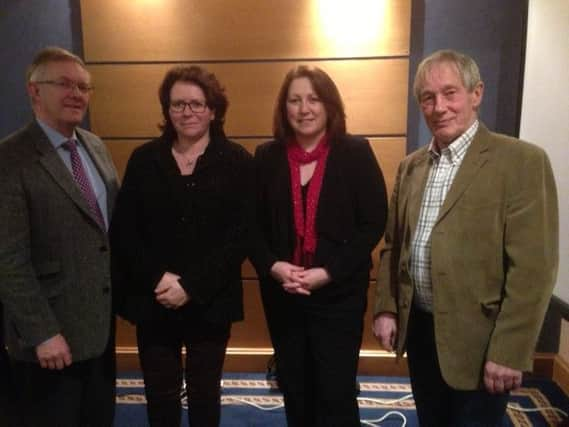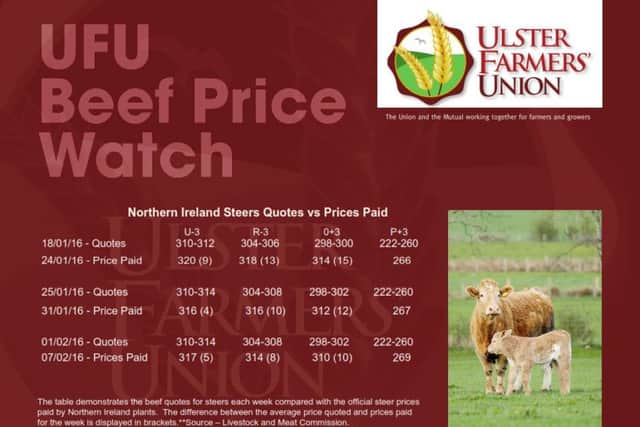Farm Business Development roll-out discussed at meeting


A key part of the FBIS is the creation of Business Development Groups (BDGs).
These discussion groups are for developing farm businesses, improving technical efficiency, developing skills and knowledge and technology transfer. There has been a big interest, with 3225 farmers taking part in groups in their relevant sectors. The UFU has welcomed the decision to accept all participants who submitted their applications correctly.
Advertisement
Advertisement
Applicants have now received notification if they were successful or unsuccessful.


Time has been allocated for unsuccessful applicants to appeal the decision.
Desirable criteria when applying included extra points for online applicants. Farmers stepped up to the mark with 96 per cent of applications received online. Participants will be invited to their first training event in March when they will receive membership agreements. An opportunity for new applications may be available later on in the year. This will be done on a sector specific basis.
Farmers who were not able to commit to Business Discussion Groups have not been forgotten about, also being rolled out in the Spring will be Farm Family Key Skills (FFKS) which is training events delivering short courses in Business planning, Animal health, Health and safety and DARD IT systems. There is also an opportunity for BDG and FFKS participants to avail of a Level 3 Qualification in Agriculture with topics/units designed to mirror the themes that will be discussed in both BDG and FFKS.
Advertisement
Advertisement
One of the most talked about elements of the new programme falls under the competitiveness strand. This is the Farm Business Investment Scheme. Up to £19million has been allocated in the form of a capital grant scheme that will aid the cost of buildings and equipment on farms.


The two tier scheme will see project spends ranging from £5000 to £30000 in a lower tier scheme, primarily for equipment items/ investment areas. The upper tier scheme will range from £30001 to £250000(total grant) for restructuring and modernisation.
With profitability continuing to be the single biggest challenge facing farmers across all sectors the UFU is continuing to lobby for a quick, effective, roll out of both tiers of the Business Investment Scheme. Tier 1 is scheduled to open for applications in spring/summer, with Tier 2 coming later in the year, around autumn. The support will be provided through grant aid which rules out any chance of advance payments.
The UFU has highlighted the need for information for Tier 2 to come out along with Tier 1 to give farmers time to prepare to apply. To be eligible for Tier 1 they will require Business ID, a proportionate business plan and the completion of farm safety training. Tier 2 will require a robust business plan to show that the applicant has thoroughly thought about the investment.
Advertisement
Advertisement
Evidence will be needed of alignment with key themes, including farm productivity improvement, supply chain integration and an environmentally friendly approach. Farmers will need to establish whether planning permission will be needed. Tier 2 investments will be required to follow Construction (Design and Management) 2007 legislation, which means a principal contractor. Any steel work will have to be CE marked, which could mean a big change of approach for farmers.
The UFU will continue to meet with DARD over the coming weeks to develop an equipment list for Tier 1 that reflects all sectors and will be effective at farm level.
The UFU will also lobby to get the details published by DARD regarding Tier 2 investments, to allow farmers maximum time to prepare for the new scheme.